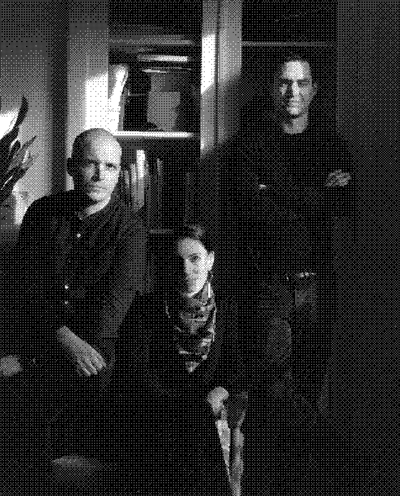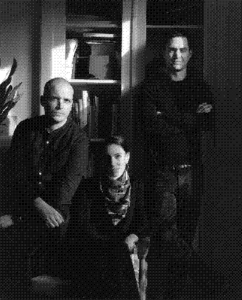References Development Strategy Advice Management Prospective Creativity Clients Communication Process Prospection Work culture Competition Presentation Design Typography Agents Advertising Ai Finance Architecture Investment Education Cgi Trend Fashion Recruitment Graphic design Nft Music Marketing Photography Sound design Research Blockchain Sustainability Crypto Technology Metaverse
5 excerpts on the topic “Music”
[…] I grew up listening to a lot of classical music. If I had to reduce it, I’d say Bach, Debussy, Ravel, Satie… and later Steve Reich. More and more I’m drawn to Eastern European and Scandinavian composers as well, though maybe we’ll get into that later. Jazz too: In a Silent Way by Miles Davis was a defining experience for me. When it comes to electronic music, Kraftwerk was an emotional shock as a teenager, when I bought “Minimum-Maximum” upon its release, and then pretty much all the German artists from that era : Neu!, Manuel Göttsching, and Klaus Schulze’s label Innovative Communication.
Ryūichi Sakamoto has been hugely important to me too. And of course, Brian Eno. And then Warp Records—Aphex Twin, Autechre, Squarepusher and so on, as well as Detroit Techno, Underground Resistance, Drexciya, Juan Atkins. And previously, the whole wave of experimental electronic music in the U.S., especially the women who led that scene: Suzanne Ciani, Laurie Spiegel, all of that really stayed with me. Then, like everyone, I’ve listened to a lot of pop music, The Beatles, Pink Floyd, and a lot of lesser-known things too. […]
Ryūichi Sakamoto has been hugely important to me too. And of course, Brian Eno. And then Warp Records—Aphex Twin, Autechre, Squarepusher and so on, as well as Detroit Techno, Underground Resistance, Drexciya, Juan Atkins. And previously, the whole wave of experimental electronic music in the U.S., especially the women who led that scene: Suzanne Ciani, Laurie Spiegel, all of that really stayed with me. Then, like everyone, I’ve listened to a lot of pop music, The Beatles, Pink Floyd, and a lot of lesser-known things too. […]
[…] The record industry model we’ve known, the one which has existed between the post-war boom and the arrival of Napster, was, in reality, just a brief parenthesis in the history of music. It lasted maybe fifty years. Out of that moment came a system where, today, only two kinds of artists really manage to thrive financially within the traditional music industry: performers, or those with a very pop-oriented proposition which can generate a large streaming revenue without too many middlemen, which is extremely rare in an age of artificial algorithmic manipulation. […]
[…] What I try to do now in my commissions practice is to help clients understand the power, or at least the value, of sound and music. In a way, before the record industry, that’s how composers have always earned a living, creating bespoke music, whether for Operas or Requiems, etc. Those commissions just take a different form in today’s broader culture. […]
[…] It’s my job to try and understand what you mean. But honestly, the two most problematic words in my experience are “rhythm” and “intensity.” “Rhythm” is tricky. For some people, it means percussive sounds. For others, it’s about tempo or pace. It can also refer to the density of notes(…) Or it might mean how the tempo evolves over time. When someone says they want more rhythm, they might mean they want it to go faster. There are just so many ways to interpret it. And “intensity” is a very cultural thing. I had a moment early on (…) when the designer kept asking for more intensity. I kept adding sounds, layer after layer, thinking I was getting closer. I eventually asked me to show me a point in my existing version which felt intense to him, and he pointed out a moment which was almost silent. I eventually realized that for him, intensity meant suspense. That taught me a lot. […]
[…] From a professional standpoint, I see every field as constantly evolving. I actually welcome AI with enthusiasm. I know that might bother some people, but despite caring about my own technical ability, I’ve never believed that the artistic gesture or creative solution was primarily a matter of execution, it’s really about ideas first and foremost (…) What does concern me more is the future of musicians in general, based on the state of the industry I was describing earlier. […]

